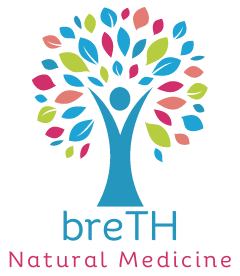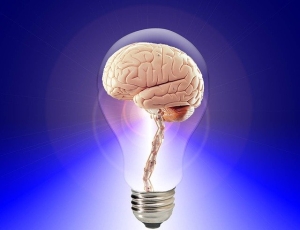Your brain uses a lot of energy every single day and it needs a variety of support to function optimally. Below are some simple lifestyle and nutritional methods to keep your brain in tip-top shape!
Lifestyle Hacks
SLEEP
Your brain does a nightly detox when you’re sleeping to flush out its daily waste products (this is known as the glymphatic system). Not receiving adequate sleep or disrupted sleep can cause an accumulation of these toxic waste products, which can impair your concentration and memory recall. In several studies, individuals who reported a history of chronic poor sleep quality had a higher association of developing Alzheimer’s Disease.
EXERCISE
Regular exercise can increase a neurotransmitter known as BDNF, which has been studied to protect and increase the number of neurons (nerve cells in the brain), affecting memory and learning. Daily movement also promotes greater oxygenation and nutrients to your cells, which can enhance your ability to focus and learn better.
MIND MAPPING
I love the principles in Dr. Caroline Leaf’s book Think, Learn, Succeed as she delineates different mindsets that either impair or enhance learning and memory. She also teaches on how to properly engage in mind mapping, which is an effective and creative learning strategy.
HYDRATION
Did you know that only 1% of dehydration in the body can cause brain fog? Drink half of your body weight in fluid ounces of pure water per day! For example, if you weigh 150lbs, drink about 75 fluid ounces of water per day. I like to keep a large water bottle with me to stay hydrated.
NUTRITION
Eat an anti-inflammatory diet or Mediterranean diet consisting of tons of fresh vegetables, good fats, clean proteins, and some whole grains to provide your brain with the right nutrients and minerals it needs. Limit the added sugars, gluten, and dairy products, as these foods can create inflammation in the body, which can directly and indirectly affect brain function.
There’s also lots of research supporting intermittent fasting in enhancing cognitive functioning and memory. If you’re interested in learning more about this topic, stay tuned! In the meantime, here are some simple dietary methods to boost your brain power:
- Herbal Support:
- Add turmeric powder to your coffee, smoothie, soups, and stews. Turmeric has so many great properties and one of them is to prevent and treat inflammation in the brain. Turmeric also boosts BDNF!
- Add fresh or dried rosemary to any meal to support blood flow to the brain. You can even receive its brain boosting benefits from inhaling it via an essential oil diffuser method.
- Protein Power:
- Wild-caught salmon offers a fantastic source of DHA, an important Omega-3 for your brain.
- Grass-fed, grass-finished or pasture-raised animal products also offer great sources of Omega-3s and CLA, another healthy fatty acid, that benefit brain health. Grass-fed sources contain up to 2x the amount of these great nutrients than grain-fed animal products!
- Veggie Power:
- Broccoli can lower the risk of neurodegenerative diseases such as Alzheimer’s due to a compound it contains that reduces oxidative stress. Add ½ cup of broccoli to your salads, eggs, or protein choice for dinner.
- If you don’t already know, I LOVE my leafy greens! They are packed with B vitamins and magnesium, two essential nutrients your brain needs to thrive!
- Fruity Fruits:
- Blueberries provide a great source of antioxidants and protect the brain from oxidative stress.
- Avocados are high in folate and monounsaturated fats, which can protect certain cells in the brain and promote nerve cell signaling.
- Try This Brain Boosting Smoothie!
- Ingredients:
- ¼ cup blueberries
- ½ avocado
- 1 handful of kale or spinach
- ½ cup water or unsweetened nut milk
- 1 tbsp coconut oil
- 1 scoop protein powder (pea protein or PurePaleo protein)
- Optional add-ins: Dash of turmeric, cinnamon
- Optional substitutes: sub avocado or coconut oil for 1 tbsp chia seeds, 1 tbsp hemp hearts, or handful of walnuts
- Directions:
- Blend all the ingredients and enjoy!
- Ingredients:
Advanced Testing Methods
These are some great testing options to consider when assessing for underlying contributors of brain dysfunction and all of these tests can be conducted from the comfort of your home!
- Organic Acid Testing (OAT)
This test provides 76 markers of health and provides insight about key neurotransmitters, intestinal yeast and bacterial, vitamins, minerals, and oxidative stress markers that can contribute to cognitive dysfunction.
- Alzheimer’s Linx
This is a cutting edge test that detects for 7 key groups of IgG antibodies produced by the immune system against internal factors as well as certain environmental triggers (pathogens, foods, and toxic chemicals) that are known to be reactive and cross-reactive with brain-related proteins and factors that are associated in the development of Alzheimer’s Disease.
- Comprehensive Stool Analysis (CSA)
If you have any digestive concerns or are concerned with your cognitive functioning, then this test can provide information about inflammation and imbalance in your gut, which can directly impact brain function.
- Environmental Toxin Testing
- Heavy Metal Testing: heavy metals such as mercury, aluminum, lead, and arsenic can adversely affect neurological function and contribute to conditions such as Alzheimer’s Disease, ADD/ADHD, Parkinson’s, and chronic fatigue syndrome.
- GPL-Tox: tests for 173 environmental toxins such as pesticides, acrylamide, gasoline additives, and solvents that can cause neurological damage. I typically recommend this test for any individuals who have high exposure from the workplace and/or engage frequently in golfing or traveling.
If you’re interested in learning more about any of the above tests or placing an order for any of them, book your consult here to do so.
Brain Supportive Supplements
Magnesium can promote connections between brain cells and signaling pathways and support memory and learning processes. A certain form of magnesium, Magnesium-L-Threonate, is able to pass through the blood brain barrier and directly affect brain function.
In a 12 week study of adults ages 50-70, administering Magnesium-L-Threonate was shown to promote brain plasticity and enhance synaptic connections, therefore, reversing some aspects of normal brain aging.
Be well!
Dr. Yas

